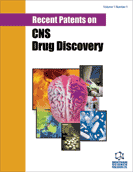Abstract
Nutritional supplements, herbal items, and processed foods, including cereals, soups, and beverages, are all sources of nutraceuticals that have medicinal or health benefits for the prevention and treatment of diseases. Nature has provided us with immeasurable, wonderful gifts, including natural products, herbal medicines, etc. All the civilizations, societies, cultures, and ethnic groups from pre-historic times till the present use plants, animals, and minerals to cure diseases. Numerous cultures have a long history of using plants to cure a variety of disorders, which has led to the formation of well-defined medical systems like Ayurveda, traditional African remedies, Chinese herbal medicines, Kampo in Japan, etc. Many medicinal plants' healing qualities have been acknowledged on a global scale. Various scientific studies, preclinical studies, clinical studies, etc., are going on to collect scientific evidence to prove their activity. There are safety problems associated with allopathic medicines. Nutraceuticals are foods high in nutrients that are consumed for reasons other than mere nutrition. These medications have shown promising outcomes in recent studies in the treatment of various pathological illnesses, including cancer, diabetes, cardiovascular disease, and neurological problems, with nutritional benefits. The most common nutraceuticals are curcumin from turmeric, glucosamine from ginseng, omega-3 fatty acid from linseed, β-Lactoglobulin from bovine milk, etc. This chapter describes the role of nutraceuticals in health and how they are different from foods and medicines.






















